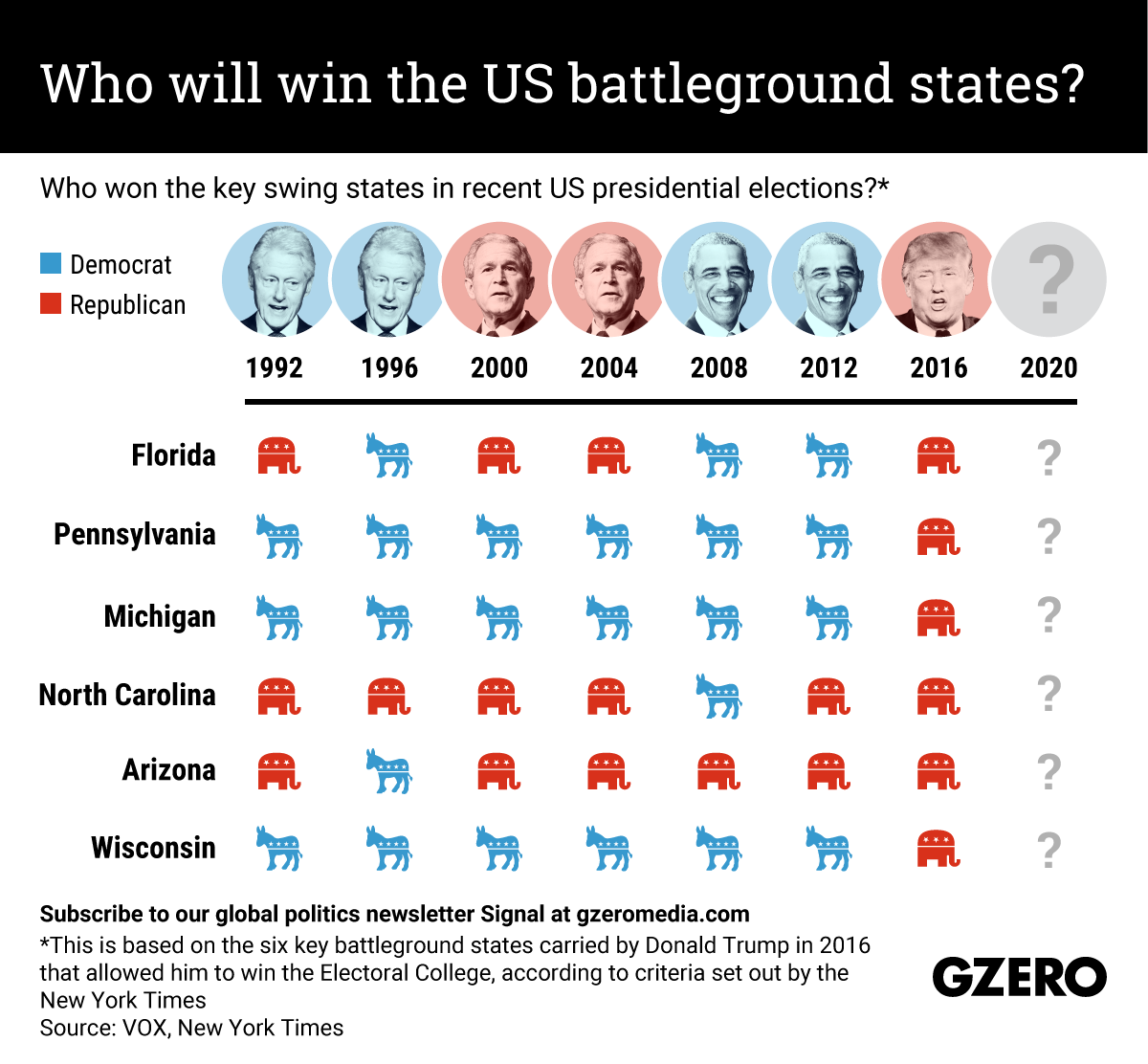The Graphic Truth: Who will win the US battleground states?
The complex US electoral college system can be hard to wrap one's head around (including for Americans). But there are some predictable elements within the electoral college process that have emerged over the past few decades. For example, voters in New York will likely back the Democratic nominee for president, while people in Oklahoma have almost always thrown their weight behind the Republican running for the highest office in the land. As a result, in recent years, successive US presidential elections have been decided by a handful of "swing states," also known as battleground states, where Democrats and Republicans enjoy similar levels of support among voters, and the outcome is often a toss-up. We take a look at how some battleground states have flipped in recent presidential elections and ponder what this might tell us about what's to come in November.
